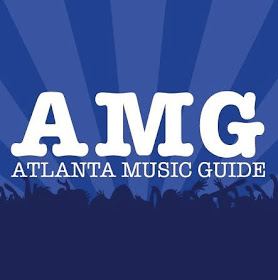Superchunk’s latest release Majesty Shredding comes across like a blast of fun jams; songs one would want to hear on the radio while driving to the beach for spring break. Making “Learned to Surf” the single proves a great idea as its ambience captures the feeling of the album. The guitar intro recalls bands like Weezer, but adds a flare that remains decidedly Superchunk. Song titles including, “My Gap Feels Weird” and “Fractures in Plaster” tie in perfectly with lyrics like the line, “Wrap a blanket around my brain” in “Winter Games.” The band returns to Atlanta for the first time in over a decade and drummer Jon Wurster took the time to answer a few questions for the crowds to be at the Buckhead Theater on September 8. Check out Majesty Shredding and buy a ticket to the live show so Superchunk knows how welcome they are in Atlanta.
How does it feel to return to Atlanta after a full decade?
It’s been a long time, hasn’t it? We’ve had some great shows there over the last twenty years, going back to the Cotton Club, the International Ballroom (with Sonic Youth in ’93), Lollapalooza (’95) and the Echo Lounge. We’re looking forward to playing the Buckhead Theater with Dodos and Times New Viking.
What fueled the decision to reissue Foolish and everything else you have done as a band on Merge Records?
Of all our albums Foolish seems to be the most highly regarded and we thought it would be a nice idea to remaster and re-rerelease it with some cool bonus material. The repacking will feature additional artwork, extensive liner notes, a live show from the Foolish tour, acoustic versions and a few basement demos.
What does it take to keep a band together for decades? What advice can you offer those just starting to form bands?
Try not to take it so seriously. When you’re young and in a band it seems like everything is life or death. Just do what makes you happy and give each other space. Taking a long break was a great thing. We worked pretty much non-stop from 1991-2001 and that took its toll. When we decided to make a record last year it seemed way less like “work” than when we were a full-time band. We’d grown a lot during those down years and things just seem easier now.
What can you tell me about the process for compiling footage and scenes for the video “Learned to Surf”?
That was all filmed on our recent trip to Brazil. Wild, crazy times down there.
How involved should band members be in the marketing and promotion of their music? Is that the job of the label?
Ideally, it should be the job of the label but I’ve rarely seen that work out to best effect. Band and label often butt heads when it comes to marketing and promotion. The label thinks it would be awesome for the band’s music to be used in a Doritos promotional campaign and the band wants no part of it. The label can’t understand why and things get icy. We’ve always been fortunate that the label IS the band (two of us, anyway) and none of those problems arise.
What do you have to say about the influence of other artist mediums like fine art, poetry, literature on the way you create drum beats and do the song lyrics affect your playing at all?
I think all of those things influence your playing, whether it’s conscious or not. Majesty Shredding was the first album we’ve done where I knew what the lyrics were going to be before I came up with drum parts and that made me approach things differently. You don’t want to do a massive drum fill where a key lyric is going to be.
If you titled a theme park ride, based on your band, what would you call it and would it go upside-down?
It would be called the Pogosphere. It would not go upside down because that would make kids throw up. No wait, I want to make kids throw up, so yes, it would go upside down.
How have you grown as a musician over the years? What have you learned and how have you broken away from the influences of bands you listened to when you first learned to play?
I’m really lucky to have gotten to play with a lot of other people over the years (The Mountain Goats/Bob Mould/Robert Pollard/New Pornographers/Ryan Adams, etc). Those situations helped me think differently and become a better drummer. I don’t think you ever fully break away from your early influences. Most everybody I’ve ever played with has what I call a “go-to rhythm” when they’re writing a song. I think that’s something that’s formed early on and becomes a part of you. It’s just a matter of adding to or subtracting from that and creating something you’re happy with.
Superchunk play The Buckhead Theatre on September 8.


